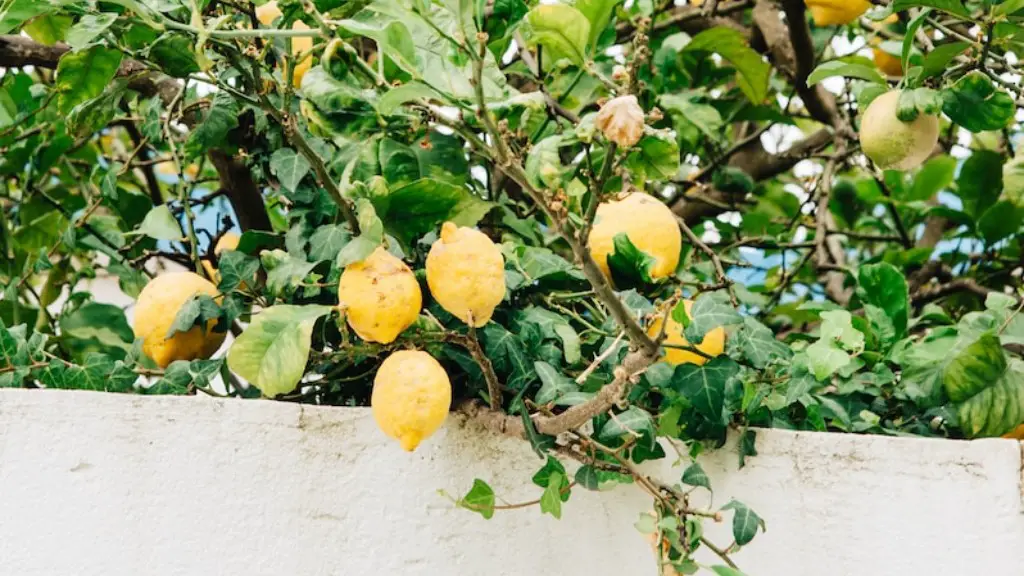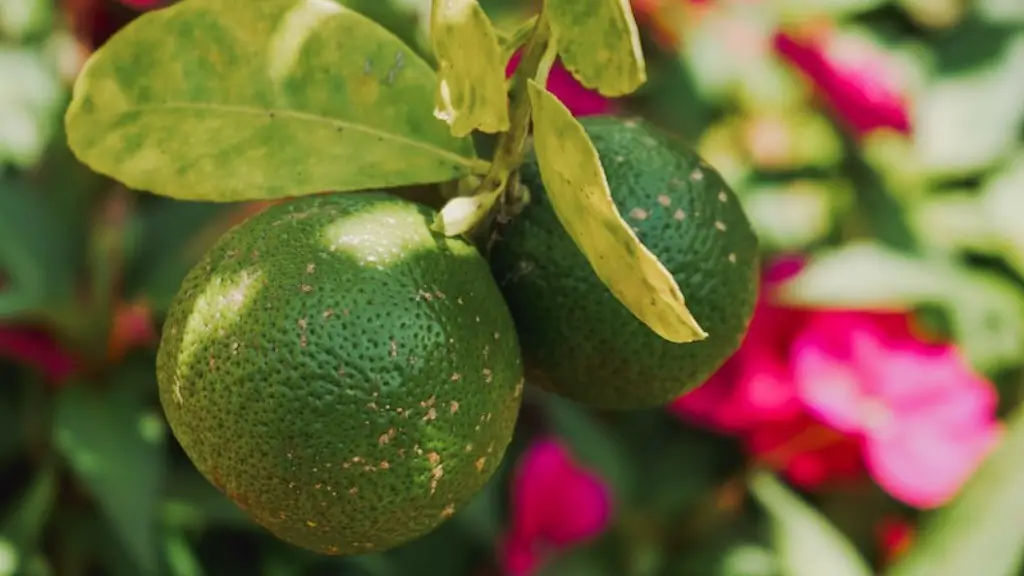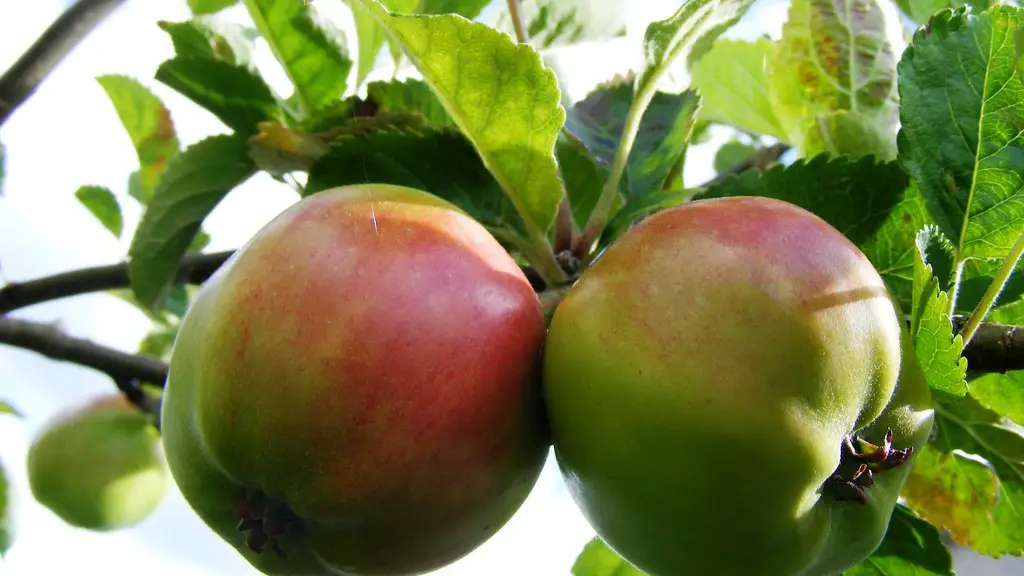It is a common question as to how many lemons a lemon tree produces. To understand the answers to this question, one must understand what a lemon tree is and how it grows. A lemon tree is a citrus tree in the family Rutaceae and is native to Asia. It is a mid-sized evergreen shrub or tree that grows between 8 and 13 feet tall, with a rounded canopy of glossy green leaves. The fruit of the lemon tree is acidic and tart in taste. A mature lemon tree can produce anywhere from 200 to 800 lemons per year, depending on the variety and climate conditions.
The amount of lemons a tree produces is governed by several influence factors. One of the most important factors is the soil condition. The soil must be well-drained and sufficiently warm for the sustaining of the lemon tree. Lemon trees need six to eight hours of sunshine a day, and the temperature should remain relatively constant for the first three years of growth. A good soil condition with warm climate encourages the healthy development of the lemon tree, increasing the amount of production.
The type of lemon tree is also a key factor in determining the amount of lemon production. Some trees produce larger yields of lemons, while others yield fewer. For example, a Meyer lemon tree typically produces larger quantities of lemons than a Lisbon lemon tree. The size of the tree and its age can also influence the amount of lemon production each year.
Fertilizing the tree plays an important role in lemon production. A good fertilizer should be used year-round to keep the tree healthy and in optimal condition. The fertilizer should be specially formulated for citrus trees with a high nitrogen content. Applying a nitrogen-rich fertilizer every month encourages growth and increased fruit production.
Pruning the lemon tree helps to maintain its shape, encourages healthy flowering and yields larger lemons. Pruning helps to remove deadwood, remove crossed branches and reduce heavy canopy growth. This allows for more sunlight to reach the inner parts of the tree and in turn increases the amount of lemon production.
Irrigation is also needed for optimal lemon production. The tree should be watered well and frequently to maintain water for growth and development. However, make sure not to over-water the tree, as this can lead to root rot. The soil should be dry to the touch between waterings.
In conclusion, the amount of lemons a lemon tree produces is dependent on several factors, such as the soil condition, climate, type of tree, fertilizer and irrigation. But with proper care, a lemon tree can produce an abundant amount of lemons.
Maintenance
Maintaining a lemon tree is an essential part of ensuring its overall health and production. Adequate maintenance helps to keep the tree healthy and increases the amounts of lemons it will produce each year. Pruning the lemon tree must be done regularly, as it helps to remove deadwood, remove crossed branches and reduce heavy canopy growth. This encourages growth and greater yields of lemons, as more sunlight can reach the inner parts of the tree. It is also important to use a specialized fertilizer to feed the tree, as this will contribute to the healthy development of the tree, increasing the yearly production. Lastly, the lemon tree must be regularly watered, allowing for soil moisture but not to the point of over-watering, as this will cause root rot and can lead to the death of the tree.
Growth and Development
The growth and development of a lemon tree is critical for increasing its production of lemons each year. Understanding and managing the environment that the tree is grown in is the first step. The soil must be well-drained and not overly saturated, and the climate should remain relatively warm and consistent at least for the first three years of growth. Adequate sunlight is necessary, preferably 6-8 hours a day, and making sure the tree is not exposed to frost and cold temperatures. Proper fertilization of the lemon tree is also key in helping it to reach optimum growth and maximum production of flowering. Nitrogen-rich fertilizer is recommended for citrus trees, as it helps to supply the tree with sufficient nutrients for healthy growth.
Harvesting
Although the amount of lemons a tree produces can vary each year, the best way to maximize production is to harvest the lemons at their desired maturity. Do not wait too long as this can result in the quality of the lemon declining. Pick the lemon when they turn golden yellow and feel firm, this is the best time to harvest the lemon. Conversely, harvesting the lemons when they are too immature can lead to the lemons being too sour. With properPrune harvesting, the tree can produce more lemons, and with larger yields, resulting in the highest quality of lemons.
Pests and Diseases
Pests and diseases are common problems which can occur in a lemon tree. Monitoring should be done regularly to detect and control pests, as well as to prevent diseases from developing. A few examples of common pests which can affect lemon production include aphids, whiteflies, and scale insects. Protect the tree from these pests by providing proper irrigation to the soil and by preventing overcrowding of the tree. Additionally, use natural pest control methods, such as neem oil, to keep the tree healthy. Diseases can also affect the tree and can result in a reduced production of lemons. Therefore, an appropriate fungicide should be used every six months to keep its leaves and fruits healthy.
Preserving Lemons
Preserving lemons is an important step in guaranteeing the best quality of lemons for future use. Lemons are filled with Vitamin C and many other essential vitamins and minerals, making them an extremely healthy and nutritious ingredient in various cuisines. To preserve the quality and freshness of the lemons, they should be stored in a cool, dark place such as the refrigerator, in an airtight container. Alternatively, lemons can also be preserved by freezing them. By freezing the lemon juice or slices and adding them to cold water or smoothies, can make for a super refreshing summer drink.



